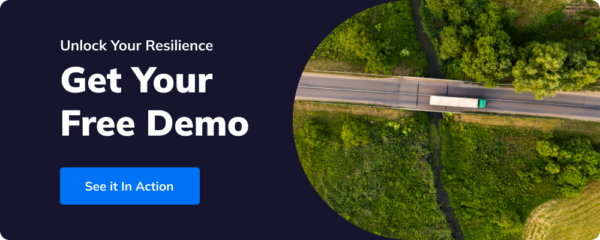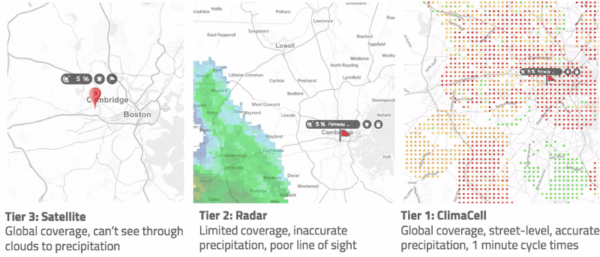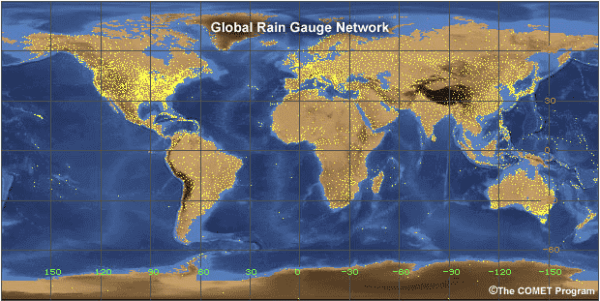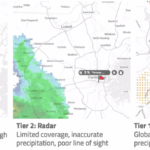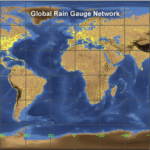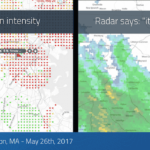TL;DR:
- Intermodal transportation is rebounding after the COVID-19 pandemic, driven by increased e-commerce demand.
- Technologies like blockchain, green technology, autonomous vehicles, weather intelligence, and data analytics are reshaping the industry.
- Blockchain improves supply chain visibility and security.
- Green technology promotes sustainability and reduces emissions.
- Autonomous vehicles increase efficiency and safety, while weather intelligence and data analytics enhance decision-making and customer service.
Intermodal transportation is flexible, scalable, efficient, and cost-effective. Despite the ability to adjust, it also requires extensive planning and precise logistics.
Since 2020, when the COVID-19 pandemic led to an explosion in e-commerce and put intense pressure on the entire supply chain, the intermodal industry has bounced back to its pre-pandemic numbers.
But it’s important to understand the pandemic’s impact on this industry. During COVID, customers didn’t just want –– but needed –– quick and reliable deliveries. They often couldn’t head out to the stores and malls to pick up necessary items, instead ordering almost everything online.
According to IANA: Intermodal Association of North America, the pandemic accelerated changes in consumer behavior, particularly in e-commerce, which demands faster, more transparent, and cost-effective goods to flow. This shift is reshaping the logistics market, with major players like Amazon and Shopify redefining supply chain performance and working to achieve supply chain visibility.
As a result, intermodal shippers must embrace the technology that ensures their shipments meet and exceed customer expectations. This can be a tough sell for an industry that has traditionally been slower to embrace innovation. But it’s also necessary for companies to stay in business and adapt to the changing economy.
Here are five technologies you should know about that will reshape the intermodal industry.
1. Blockchain
Intermodal shipments have longer and more complex supply chains than unimode shipments.
This difference often means data sits in silos within each individual provider’s system rather than being shared across platforms and being made available when and where it is needed. Intermodal operators don’t have the necessary data and visibility across all transportation methods to manage demand, keep customers updated, and ensure efficient shipping.
Take processing and managing shipping documents.
This part of shipping can use up to 20% of the transportation costs and one-third of the transport time. Shippers have to manage contracts, tracking numbers, bills of lading, and more.
Blockchain provides a secure platform that can replace manual- and paper-based systems. It allows all transport companies and shipping operators to share information and collaborate across the supply chain while offering high levels of traceability and visibility. The encrypted public ledger can be shared with shipping partners and customers, significantly improving security.
Green Technology
In 2020, the COVID-19 pandemic put climate change firmly in the spotlight.
With flights grounded and much of the world confined to their homes, CO2 emissions fell by around 7%. Consumer awareness and pressure mean that the transportation industry needs to clean up its act, especially trucking, which accounts for around 6.5% of greenhouse gas emissions in the US.
Intermodal transportation is in itself often a sustainable shipping option. Intermodal shippers have the flexibility to choose the forms of transport that are more environmentally friendly, such as rail and shipping.
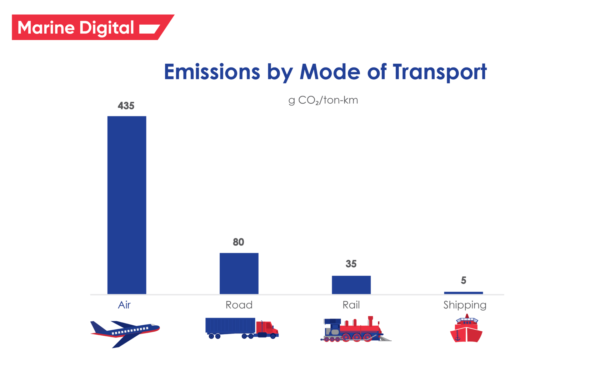
Renewable technology, including hydropower, wind, and solar-powered systems, leads to cleaner, greener shipments and helps companies meet their sustainability goals.
In the maritime industry, the MS Tûranor PlanetSolar became the first ship to circumnavigate the globe on solar power alone. Other advancements in this space include technology group ABB, which is creating hydrogen fuel cell systems for passenger and cargo ships.
Ports are working on projects including:
- Embedding clean energy
- Electrifications
- The bunkering of cleaner fuels
Singapore’s ambitious project in Tuas will see the port become the world’s largest fully automated terminal by 2040, with fully electric guided vehicles and centralized container-handling facilities, which will reduce inter-terminal haulage emissions. The port has also been built using reused and recycled materials.
Instead of ruling trucking out completely, companies can implement new technology to plan more efficient routes and reduce emissions.
Fleet management systems allow business owners to keep track of their drivers’ route data and help drivers and fleet owners plan more efficient routes. Idling reduction technologies can reduce the emissions produced when a truck is left with the engine on. Regular maintenance, such as checking brakes, tire pressure, and oil levels can increase fuel efficiency and reduce harmful emissions.
Autonomous Vehicles
Autonomous trucks, trains, and ships may sound dystopian, but they are a reality and have grown in the past few years. The technology is hugely beneficial for intermodal shippers.
Take the trucking industry.
Semi-autonomous or “platooned” autonomous trucks provide improved safety and greater fuel efficiency.
These trucks could cut operating costs by as much as 45%, resulting in cost savings of between $85 billion and $125 billion. Platooning, where one driver controls several following trucks, is being tested in multiple locations.
Positive train control systems where trains can be monitored and stopped remotely are already in operation in the US and Europe. Mining company Rio Tinto has wholly automated its 1500km railway in the Pilbara region of Western Australia. The AutoHaul operates up to 50 automated and unmanned trains at any time.
Much of the technology to deploy autonomous ships is already in place, and pilot projects are up and running in Europe. Marine systems provider Kongsberg is installing and testing autonomous technology on two vessels as part of a project that has already received funding from the European Union.
According to the company, “An autonomous barge in operation is expected to take around 7,500 trucks off the roads each year and will result in reductions in both traffic congestion and emissions.”
Weather Intelligence
There have been many examples of high-impact and extreme weather severely affecting all types of transportation methods, and the benefits of intermodal can quickly become its downfall when you factor in weather disruptions.
But if you’re aware of potential weather problems in the area your shipments will be moving through, you can better anticipate possible delays and longer delivery times, and take action to mitigate or prevent these delays. That’s where weather intelligence software can help.
By deploying weather intelligence software, you can
- Access 24/7 hyperlocal minute-by-minute weather insights
- Plan routes around weather to reduce delays
- Trigger the right alerts to notify drivers of hazardous weather
- Protect valuable assets to avoid weather-related cargo damage
- Minimize end-to-end disruptions through better, proactive decision-making
- Monitor drivers along hazardous routes, and more!
Data Analytics Solutions
Artificial intelligence, machine learning, predictive maintenance, blockchain, autonomous vehicles, sensors, weather intelligence –– what do they all have in common? They all rely on collecting, centralizing, analyzing, and gaining actionable insight from data.
Data can have a huge impact on all areas of the intermodal shipping journey, but only if you have the necessary systems in place to make the most of the information you already collect.
Data analytics solutions help you harness the ever-increasing flood of data from a wide range of sources. You can make sense of this data and extract insight that allows you to:
- Improve shipping times
- Switch to predictive maintenance
- Keep your customers informed at all times
- Reduce costs
- Enhance collaboration and visibility across all partners, suppliers, and vendors
There is unlikely to be just one technology that will transform the intermodal industry. Instead, the interplay and overlap between the different solutions will be crucial for success.
One thing is certain: you need to get your data in order to remain competitive.
How Tomorrow.io Supports the Intermodal Industry
We recently sat down with supply chain and logistics operations leaders to discuss building resilience against increasing climate impacts.
John Murnane, McKinsey Sr. Partner, Warrick Nance, ConGlobal’s VP of Safety, and Mekala Krishnan, McKinsey Global Institute Partner, shared insights on leveraging data, automating workflows, and implementing proven practices to adapt operations.
You can check it out below.
Here’s what we learned:
- Conduct granular, location-specific climate risk assessments to understand vulnerabilities across supply chain assets and routes. This enables data-driven resilience planning tailored to each site’s exposure.
- Automate workflows and response plans based on weather triggers to rapidly protect infrastructure, ensure safety, and maintain operations. AI assistants like Tomorrow.io’s Gale facilitate this.
- Build in structural supply chain resilience via redundancy while also closely monitoring emerging risks and running “what-if” scenarios to enable adaptation.
- Prioritize workforce safety initiatives powered by specialized weather alerts on conditions like excessive wind, lightning, and extreme heat. This allows precautionary protocols to protect employees.
- Combine predictive intelligence, visibility across the supply chain, and ingrained flexibility to create climate-aware, automated, and resilient operations. Advanced solutions like Tomorrow.io’s platform enable this.
With Tomorrow.io businesses in the supply chain and logistics industry can combat the impact of severe weather while keeping their employees safe and operations in order.



